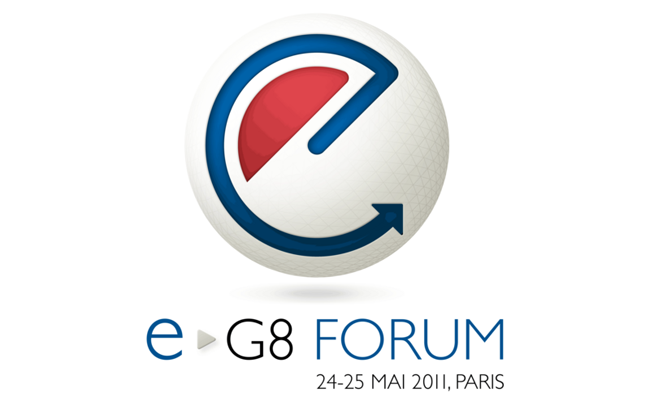 The leaders of the G8 countries joined with leaders of the increasingly essential Internet economy this week for the first-ever eG8 conference in Paris, France, to discuss the future of the Web and its role in the offline world.
The leaders of the G8 countries joined with leaders of the increasingly essential Internet economy this week for the first-ever eG8 conference in Paris, France, to discuss the future of the Web and its role in the offline world.
The eG8 was organized by French President Nicolas Sarkozy, who today delivered the opening keynote and discussion at the conference. Other speakers at eG8 include Google chairman Eric Shmidt, Facebook co-founder and CEO Mark Zuckerberg, Amazon founder and CEO Jeffrey P. Bezos, Groupon CEO Andrew Masson, and News Corp. head Rupert Murdoch, among many others.
Of all the talk at the two-day conference, which precedes the annual G8 economic forum, a single theme permeates: The Internet is a big, big deal. According to research from the McKinsey Global Institute, published by Business Insider and released in conjunction with eG8, the Internet is responsible for approximately 20 percent of economic growth for the 13 countries included in the study, and an estimated 2.9 percent of total worldwide GDP. That makes the Internet a more powerful driver of economic growth than mining, utilities or agriculture.
Currently, the Internet’s role in the economies of Sweden and South Korea, where the online infrastructure is the most advanced of all nations, remains particularly strong. In Sweden, Internet-related business accounts for 6.3 percent of GDP, the highest of any other nation reviewed in the study. Even more impressive, however, is that the Internet contributes an average 21 percent of GDP growth in highly developed nations, more than double what it contributed five years prior.
The McKinsey study also shows, unsurprisingly, that small businesses that use the Internet make far more money than those that do not. Traditional companies, as opposed to entirely Internet-based businesses, benefit the most from the Internet. And countries that invest highly in Internet infrastructure reap the biggest benefits from the online boom.
Perhaps the most surprising finding of the McKinsey study is that the US not only has the best Internet ecosystem, but also one that benefits the widest range of parties, from the telecom companies at the bottom all the way through to software and Internet-based companies.


